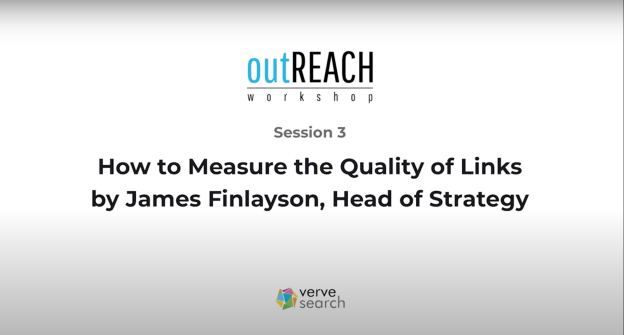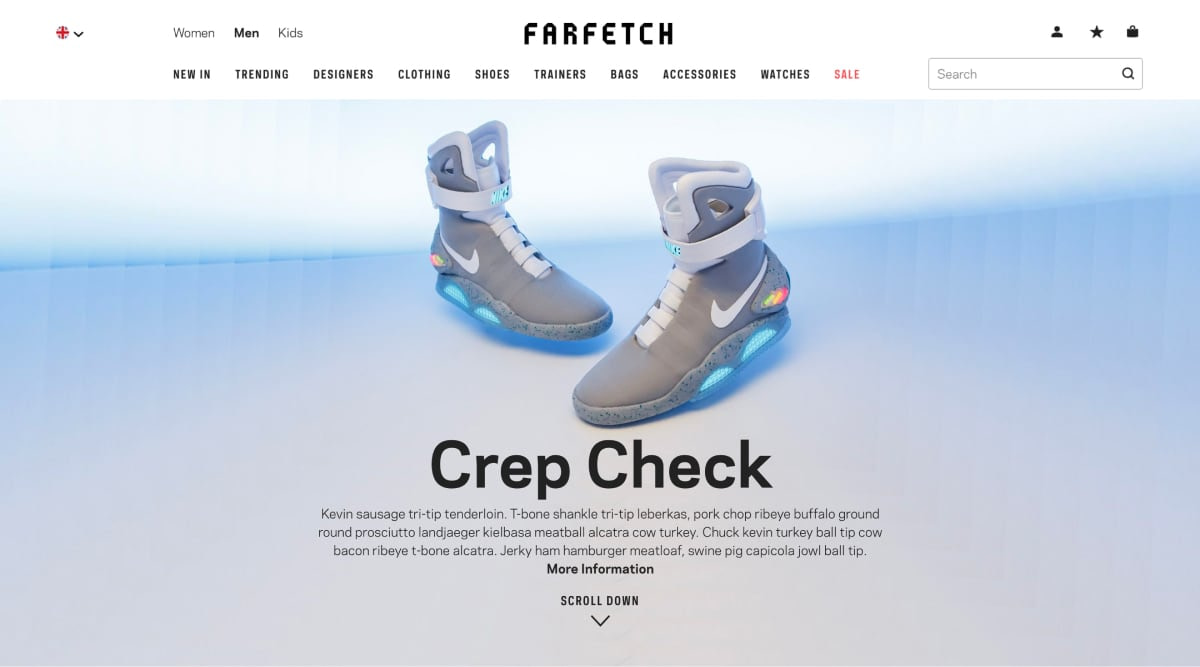This summer’s Brighton SEO 2021 conference was packed with impressive speakers from a range of professions in the SEO industry, including our very own Laura D’Amato and Giacomo Zecchini.
Members of the Verve team highlighted a number of interesting talks that took place over the two days and reported back with some of their favourite takeaways of the sessions.
Making headlines: Pitching tips and debunking myths from a former journalist
Speaker: Surena Chande, freelance copywriter
Favourite takeaways:
- At the ideation stage, think like a journalist would and try to figure out how you could reach a headline or story that would evoke certain emotions such as shock, anger, sadness, happiness, or outrage.
- Your subject line really is absolutely key as it is the only factor that will decide whether a journalist would open your email or not.
- Don’t do a click-bait headline. Journalists see through it and will delete it ASAP.
- Be specific. ‘Manchester is the most popular city for shopping’ rather than ‘The 10 best cities for shopping in the UK’. Journalists want to know immediately what the story is.
- Front-load keywords in your subject line – the most important keywords at the front.
- When prospecting and refining your pitch, check recent articles by the journalist and see when they were published to gauge when to send your pitch. Journalists work shifts, so 8am Monday-Friday might not be the only pitching-time option.
Q&A – Link building, Outreach, Digital PR
Speakers: Laura D’Amato, Surena Chande, Jon Buchan, Chris Czermak, Sarah Fleming, Jasmine Granton, Louise Parker, Laura Wilson.
Favourite takeaways:
- When going out with a reactive piece of content, always get a second pair of eyes (preferably the client) beforehand.
- Having a diverse set of skills and experiences on your team is great for coming up with ideas, for checking campaigns, and for ensuring that what you put out is ethical.
- Be honest and believe in your abilities with brands. It will make them trust you a lot more.
- The speakers had different opinions about whether you need to put out a campaign or not. At the end of the day, it depends on your or your client’s expectations. As long as this is clearly communicated and that you agree with what you want the results to be, you can choose how to get there.
- Verve’s take on it is that big campaigns allow us to reach out to a large panel of journalists with in-depth research and therefore get the attention of top-tier publications. However, we always like to mix this with a more reactive approach to target relevant publications for the client.
- As long as your content is relevant and resonates with your target audience, the format is not the most important.
- Your content needs to be suitable for social media too as it’s a big part of journalists’ KPIs.
Diversity and Inclusion in Marketing, One Year On – Why Has Nothing Changed?
Speaker: Azeem Ahmad, Digital Marketing Lead at Azeem Digital
Favourite takeaways:
- Companies should ensure every leadership bonus is tied to D&I initiatives – if POC/women aren’t being paid fairly, neither should the leadership.
- Start to measure and publicly release detailed yearly diversity data.
- Introduce wage equity schemes to ensure women and POC are being paid on par with white counterparts.
Looking back at 2020:
- 8% average POC speaking representative at selected conferences. All were men.
- 6 in 10 believed their identity or ethnic background has affected their career opportunities.
- 58% said they were either unsure or disagreed that their workplace actively tried to address the diversity gap between POC/white staff, and 43% believed their organisation doesn’t have an inclusive culture.
2021: Why has nothing changed?
- One in six fear they would lose their job if they got terms around race and ethnicity wrong, while 30% felt it would lead to disciplinaries.
- Workers are more confident talking about death (38%) than race and ethnicity (29%) in the workplace.
Find Azeem’s blog post and slides here.
How to build links with digital PR without launching a single campaign
Speaker: Louise Parker, Digital PR Director at Propellernet
Favourite takeaways:
- If someone in your company gets excited about a new trend, then there will most likely be a journalist who is interested in it as well.
- Read the publications you’re targeting and look out for story styles that your brand could ‘reuse’.
- It’s a myth that journalists won’t publish something that has been published somewhere else.
- Think broadly about your media target. For example, if a campaign got coverage in the UK travel sites, which other countries can I outreach to?
The importance of changing up your pitches
Speaker: Laura Wilson, Digital PR Manager at Shout Bravo
Favourite takeaways:
Campaign…
- Make sure it has different angles to go out with, to different journalists, different publications, and fits different niches. Don’t limit what you can achieve with your campaign.
- Have on hand a rich variety of different assets: data, visuals, case studies, expert comments, and (if it’s relevant for them to provide them) client comments.
Writing a press release…
- Personalise your pitch to the journalist. Use their name. Is it really relevant to them? Have they written about this subject before? What do they normally feature in the way of assets or case studies?
- Cater what you include in your email according to what the publication typically covers. National newspapers tend to like gender breakdowns in data. Niche industry publications will want to talk about data relevant to the industry.
- Use a subject line relevant to that publication and make sure it is effective. There are lots of tools out there that can analyse and score your subject line on its effectiveness. Try things out and experiment to see what works best.
- Write according to the language and tone you see in the target publication: for example, do they write in a sensationalist tone or more factual?
- Brief press releases are better for bigger publications. They are busier and the brief needs to be more to the point. Include all the key information that they need. Detailed press releases are better for niche publications. Detailed releases will be really relevant to them so they can have lots of detail.
- Big national newspapers like case studies as it provides a first-hand experience of the subject in your release. Consider focusing your pitch around this case study if it’s strong enough. Otherwise, you can just mention that you have one on hand.
- Including expert commentary – whether external or client – makes a journalist’s job easier. They won’t have to search it out themselves if they need it.
- The more you provide, the less a journalist has to do. It’s easier for them to take all your assets and get a story live if they don’t have to keep referring back to you.
Find Laura’s blog about her talk here.
The Most Common Accessibility Pitfalls and How to Fix Them
Speaker: Jessica James, Account Director at Erudite
Favourite takeaways:
- Great accessibility is also great UX. Great UX has long-term SEO benefits for your brand and builds brand loyalty. If your website is accessible to everyone, it makes sense that more people will come back to use it and recommend it.
- There are various kinds of disabilities you need to be aware of when building your website. These include not only sensory, cognitive, or motor, but situational, temporary, and socioeconomic. A temporary disability might be that you’re in a space where you can’t listen to a video out loud and need subtitles. Temporary includes carpal tunnel syndrome or a concussion. Socio-economic disabilities might include poor wifi, which impacts load speed and limits what a user can access.
- There are different things you need to consider to make your website more accessible. The main ones highlighted in this talk are: improving your site’s colour contrast; making images accessible (e.g. with alt text); ensuring accessible navigation (e.g. making your website conveniently accessible with just a keyboard); and using the right tone of voice (e.g. using plain English).
- There are free tools available online to assess your website’s current accessibility and help you to improve it. One example is WebAIM’s contrast checker.
- In the UK alone, £17.1 billion is lost every year due to inaccessible websites. You are also legally obliged to make your website accessible.
How to devise a content strategy following a content audit
Speaker: Jess Peace, Senior Content Producer at NeoMam Studios
Favourite takeaways:
- There’s no one-size-fits-all approach to content marketing, particularly where your target audience is concerned. Your business goals should highlight areas of focus, which will help to set your content strategy’s priorities.
- Before trying to define what content you want to create, first define the audience that it is for. This will help to make the content more relevant and valuable for them, and increase the likelihood of greater engagement and more conversions. To do this, ask questions like: Who do you want to reach? Are you looking to expand your audience or target a new one? What does your audience care about?
- Try applying the ‘snog-marry-avoid’ framework when combing through existing pages during a content audit. It can be defined like this:
Snog: content that works well in meeting KPIs but could be working harder
Marry: content that works really well in meeting your KPIs and is a prime example of the kind of content that you should be creating more of
Avoid: content that doesn’t really hold any benefit, for example, it drives no traffic, has low engagement and/or is outdated
- The importance of consumption for creativity: we work in an inspiring industry full of creative case studies, but also pay attention to what’s outside of the industry, and outside of your realms of interest in the form of blogs, podcasts, artwork, newsletters, TikTok, inspiring people, Reddit, etc.
Morals and ethics in Digital PR – why we need to check ourselves
Speaker: Jasmine Granton, Co-Founder of Chalkboard Creative
Favourite takeaways:
- When your only goal is earning links, it can be easy to forget about core PR values, like looking after your client’s brand.
At the ideation stage…
- Make sure you have a tight methodology and strong data:
- In an age where consumer trust in the media is low, we owe it to the public to provide the correct information.
- Weak and untrustworthy data will negatively impact your relationship with journalists.
- It upholds certain digital PR standards. It’s not ethical or good for the industry as a whole to provide false data.
- Consider the ethical implications and ask yourself:
- Could the campaign be harmful, e.g. add to harmful stereotypes or upset a group of people?
- Are there opportunities for a journalist to take your story and turn it into something harmful? Is it harming a conversation taking place in culture and could it take the media’s attention away from more important conversations in that space?
- Is it inclusive? Are the designs thoughtful and inclusive as well? Not only does inclusive design reflect well on the brand and include more people in its audience, but gives us some power in the media to enact real change in representation.
- Think about brand guardianship, too:
- Be honest with your client. They need to be aware of their limitations when it comes to the type of content they can put out. A campaign can’t be hypocritical. Where are they an authority and where are they not?
- You’ve been trusted with their brand. Think about how you communicate with journalists on their behalf and prevent any backlash or negative attention.
The next Brighton SEO conference will take place on September 23rd and 24th, 2021. Featured image credit: brightonSEO.
Interested in our content marketing and digital PR services? Get in touch.






